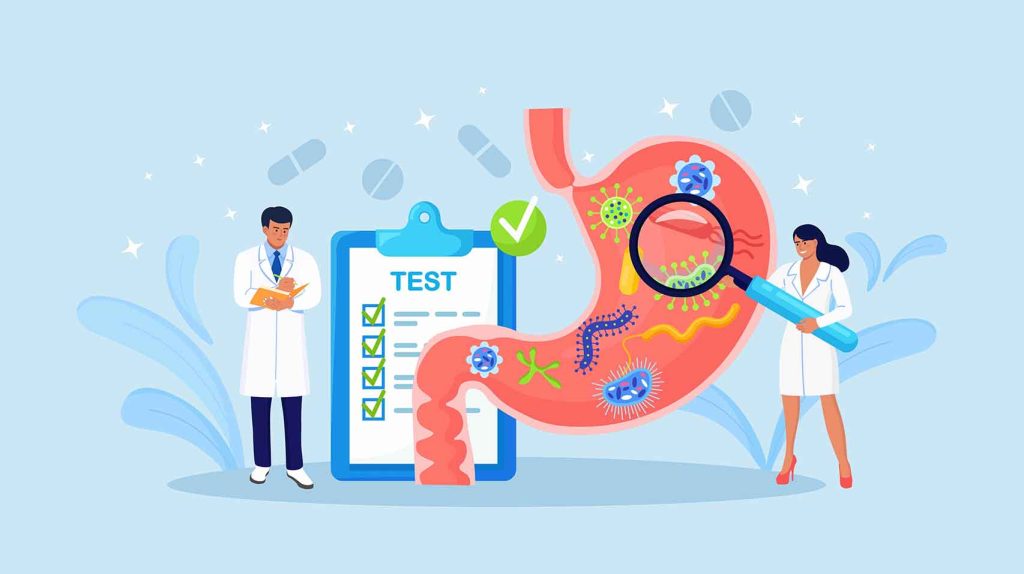Persistent fatigue is one of the most common complaints we hear about in our clinical practice — and for those experiencing it, it is also one of the most frustrating. You may be sleeping well, eating reasonably, and keeping up with life’s demands, yet still find yourself running on empty. Standard blood tests often come back “normal,” leaving you without answers while tiredness continues to affect your work, relationships, and quality of life.
But did you know your tiredness could be linked to nutrient deficiencies, hormone imbalances, or even gut health — even if your blood tests look normal? Ongoing fatigue is often the body’s way of signalling that something deeper is out of balance. Whether it’s nutritional depletion, hormonal shifts, mitochondrial dysfunction, sleep disturbance, chronic infection, or environmental exposures, the key to lasting energy is identifying and addressing the root cause — not just masking the symptom with caffeine or brief periods of rest.
In this month’s blog, we explore the most common causes of persistent fatigue, the advanced functional medicine tests that can help uncover them, and practical nutrition and lifestyle strategies to restore your energy and vitality.
Fatigue is the principal complaint in an estimated 5–7% of primary care consultations in the UK

Why You’re Always Tired: A Functional Medicine View
Feeling tired all the time is more common than you might think. In the UK, fatigue is one of the top reasons people visit their GP, and surveys suggest up to 1 in 5 adults experience tiredness lasting more than a month. While these numbers show just how widespread the problem is, they don’t explain why it happens — and that’s where a functional medicine approach makes the difference.
Rather than focusing solely on ruling out major illness, functional medicine looks deeper at the interconnected systems in the body. Ongoing fatigue is rarely caused by a single factor. More often, it’s the result of multiple imbalances working together — from nutrient deficiencies and hormonal changes to poor sleep quality, mitochondrial dysfunction, chronic infections, or environmental exposures.
1. Nutrient Deficiencies
Your body needs the right raw materials to produce energy at a cellular level. Deficiencies can arise from poor diet, digestive issues, chronic illness, or increased demands.
-
Iron – low levels reduce oxygen delivery to tissues.
-
Vitamin B12 & Folate – essential for red blood cell production and nervous system function.
-
Vitamin D – supports immune regulation and muscle health.
-
Magnesium – vital for over 300 enzymatic reactions, including ATP (energy) production.
2. Hormonal Imbalances
Hormones are chemical messengers that influence energy, mood, and resilience.
-
Thyroid dysfunction (underactive or overactive) can slow metabolism or cause energy crashes
-
Adrenal dysregulation from chronic stress can flatten the cortisol rhythm — leaving you wired at night, exhausted during the day (Read our blog on Stress, Cortisol & HPA Axis Imbalance)
-
Sex hormone changes – declining oestrogen, progesterone, or testosterone can affect vitality, muscle mass, and motivation
3. Mitochondrial Dysfunction
Mitochondria are the “batteries” of your cells. When they struggle, ATP (energy) production drops. Causes include:
-
Chronic inflammation
-
Oxidative stress (free radical damage)
-
Toxin exposure (heavy metals, mould, pesticides)
-
Nutrient depletion (CoQ10, carnitine, B vitamins)
Often seen in ME/CFS, Long COVID, and post-viral fatigue. (See our blog 7 Ways to Support Your Mitochondria)
4. Illness & Chronic Conditions
Underlying illnesses — whether short-term or long-standing — can place a continuous strain on the body, forcing it to divert energy towards healing and immune defence. This can leave you feeling drained even during periods of rest.
-
Persistent infections – e.g. Helicobacter pylori (see our Functional Medicine Guide to H. pylori Testing & Treatment) , Epstein–Barr virus, Lyme disease, or SIBO
-
Autoimmune diseases – coeliac disease, rheumatoid arthritis, lupus
-
Cardiovascular or lung conditions – can reduce oxygen delivery to tissues
-
Cancer – often associated with profound fatigue
5. Sleep Disorders
Without restorative deep and REM sleep, energy levels inevitably suffer.
-
Insomnia – difficulty falling or staying asleep
-
Obstructive sleep apnoea – repeated airway obstruction lowers oxygen supply
-
Restless legs syndrome – repeated leg movements disrupt rest
-
Cancer – often associated with profound fatigue
6. Toxicity & Environmental Exposures
Long-term exposure to toxins and environmental pollutants can interfere with cellular energy production, disrupt hormones, and create ongoing inflammation. This can happen gradually, so the connection to fatigue isn’t always obvious.
-
Heavy metals (mercury, lead, arsenic)
-
Mould toxins (mycotoxins)
-
Volatile organic compounds (VOCs) from household or industrial chemicals
7. Lifestyle & Psychosocial Factors
Daily habits, stress levels, and emotional wellbeing have a major influence on how energised or depleted you feel. Over time, a poor lifestyle balance can be just as draining as a physical illness.
-
Overtraining without recovery
-
Diets high in ultra-processed foods and low in nutrient density (see our blog on How To Manage Blood Pressure Naturally)
-
Chronic stress without sufficient relaxation
- Excessive use of electronic devices such as phones, computers, tablets
Book a Free Discovery Call
Discuss your health concerns with one of our expert practitioners and find out how personalised functional medicine can get your health on the right track.
Functional Medicine Testing for Fatigue
If you’ve been told “your tests are normal” yet still feel exhausted, it may be because standard investigations are designed to detect disease at an advanced stage — not the subtle imbalances that can sap your energy and that, if not addressed, may cause illness further down the line.
Functional medicine testing looks deeper, assessing how your body’s systems are functioning on a spectrum from optimal to impaired. This personalised approach, guided by your symptoms and history, can uncover nutrient gaps, hormonal changes, gut issues, or environmental factors often missed in routine care.
A personalised assessment might include:
Core Tests
These tests check fundamental nutrient and metabolic markers that directly affect energy:
-
Full blood count, ferritin, iron studies – assesses red blood cell health and iron storage, essential for oxygen delivery to cells. Low iron or anaemia can be a major cause of fatigue.
-
Vitamin B12 & folate – crucial for red blood cell formation, nerve health, and energy production. Deficiencies can lead to weakness, brain fog, and exhaustion.
-
Vitamin D – supports immune health, muscle function, and mood regulation; low levels are linked to persistent fatigue.
-
Magnesium – involved in over 300 enzymatic reactions, including ATP (energy) production and muscle relaxation.
-
CRP & ESR – inflammation markers that may point to chronic illness or hidden inflammatory triggers.
-
Thyroid panel (TSH, free T3, free T4, antibodies) – goes beyond basic TSH checks to assess thyroid hormone output and potential autoimmune thyroid disease, both of which affect metabolism and energy.
Hormone & Stress Profiles
Assess how stress and hormonal changes are influencing your energy:
-
Salivary or urinary cortisol curve – measures cortisol throughout the day to identify adrenal fatigue, HPA axis imbalance, or stress-related hormone disruption.
-
Sex hormone panel – evaluates oestrogen, progesterone, and testosterone levels, which can all influence mood, stamina, and muscle mass.
Gut Health Tests
Uncover digestive imbalances that may reduce nutrient absorption or increase inflammation:
-
Comprehensive stool testing – assesses microbiome balance, digestive enzyme function, inflammation, and the presence of harmful bacteria, yeasts, or parasites.
-
SIBO breath test – checks for small intestinal bacterial overgrowth, a common cause of bloating, poor nutrient absorption, and low energy.
-
Zonulin for gut permeability – measures intestinal barrier function. “Leaky gut” can trigger systemic inflammation and fatigue.
Nutrient & Mitochondrial Function
These tests evaluate the body’s energy-production capacity at a cellular level:
- Organic Acids Test (OAT) – provides insight into nutrient deficiencies, mitochondrial performance, and detoxification pathways.
- Amino acid profile – identifies imbalances in protein building blocks needed for repair, neurotransmitter production, and metabolism.
- Omega-3 index – measures levels of anti-inflammatory fatty acids, important for cardiovascular, brain, and cellular health.
Specialised Tests
In some cases, specific symptoms may suggest further investigation:
- Sleep studies – can diagnose conditions such as sleep apnoea or periodic limb movement disorder, which fragment restorative sleep.
- Heavy metal & mycotoxin screening – detects environmental toxin exposure (e.g., mercury, lead, mould toxins) that can impair mitochondrial function and hormone balance.

Nutrition as the Foundation for Energy
When it comes to overcoming persistent fatigue, nutrition is one of the most powerful and immediate levers you can pull. Every cell in your body relies on a constant supply of nutrients to produce ATP — the energy currency that keeps you moving, thinking, and functioning at your best. If those nutrients are lacking, imbalanced, or poorly absorbed, tiredness becomes inevitable.
From a functional medicine perspective, nutrition is not just about calorie intake — it’s about delivering the right building blocks in the right amounts so your body’s energy systems can work efficiently. By restoring nutritional balance, you address a core piece of the fatigue puzzle while supporting other systems such as hormones, the gut, and the mitochondria.
Here are some evidence-based strategies to restore energy through food:
-
Balance blood sugar – combine protein, healthy fats, and fibre at every meal to prevent the highs and lows that lead to mid-afternoon crashes.
-
Correct deficiencies – prioritise nutrient-dense foods (e.g., iron from grass-fed beef or lentils with vitamin C, B12 from fish or eggs, magnesium from leafy greens and nuts) and supplement where necessary based on testing.
-
Support mitochondria – include CoQ10-rich foods (oily fish, organ meats), antioxidant vegetables (berries, leafy greens), and adequate high-quality protein to maintain muscle mass and repair tissues.
-
Reduce inflammation – increase omega-3 intake from oily fish, flaxseeds, or chia seeds; use polyphenol-rich herbs and spices; limit refined oils and sugars that can drive inflammatory processes.
-
Optimise gut health – feed beneficial bacteria with prebiotic fibres (onions, leeks, asparagus), include probiotic foods when tolerated (fermented vegetables, kefir), and address any underlying infections or dysbiosis.
Because nutritional needs vary from person to person, the most effective results come from a tailored approach. At Nutrition Diets Clinic, we use advanced functional testing to identify your specific deficiencies and imbalances, then create personalised health plans and nutritional therapy programmes to help you restore energy at the root level. This ensures your plan is as unique as you are — targeted, efficient, and sustainable.
For more information on our range of health tests, personalised nutrition and lifestyle plans and targeted supplement protocols tailored to your needs by our practitioners visit our How It Works page.
Book a Free Discovery Call
Schedule a consultation with our functional medicine expert to uncover the root cause of your symptoms and receive a tailored treatment plan.
FAQs and Key Takeaways
Why am I tired all the time?
Up to 1 in 5 adults in the UK experience tiredness lasting more than a month. It’s often due to a combination of factors such as nutrient deficiencies, hormonal imbalances, mitochondrial dysfunction, poor sleep quality, chronic illness, environmental toxins, and lifestyle stressors.
What tests can help find the cause of fatigue?
Functional medicine testing goes beyond standard blood work to uncover hidden nutrient gaps, hormone changes, gut health issues, or toxin exposure that may be draining your energy.
Can diet and nutrition really improve energy levels?
Yes. Balanced blood sugar, targeted nutrient repletion, anti-inflammatory foods, and gut health support can all help restore sustainable energy production.
Why is a personalised plan more effective?
Your root causes are unique. A tailored nutritional therapy and lifestyle plan addresses your specific needs, making it the most effective way to resolve ongoing fatigue.
YOUR HEALTH. YOUR CHOICE.
If you’re always tired and your standard tests are “normal,” it doesn’t mean nothing is wrong — just that the root cause hasn’t been found yet. But the good news is you don’t have to accept exhaustion as your normal mode.
At Nutrition Diets Clinic, our functional medicine approach goes far beyond generic advice by considering your unique genetic makeup, diet, environmental exposures, lifestyle factors, and health history to get to the root cause of your health concerns.
1) Expert one-to-one therapy
2) Personalised nutrition and lifestyle plans
3) Easy, at-home functional testing
Starting the journey towards improved health can feel daunting but our team of qualified professionals are here to provide you with expert guidance and support every step of the way.
We offer thorough clinical assessment and therapy via convenient online consultations. Getting started is simple and free so why not take charge of your health today?
